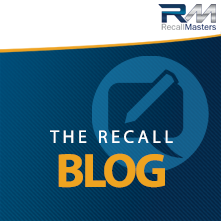Why Recalls Won’t Ever Go Away – Part 1
Why Recalls Won’t Ever Go Away: Part 1
Recalls have reached epidemic levels and stretch the resources of everyone involved – dealers, manufacturers and parts suppliers – as well as the patience of consumers faced with a recall, or who contemplate the purchase of a new or pre-owned vehicle. While it may be tempting to imagine a world where recalls aren’t such a burden to dealers and customers, the fact is, recalls are here to stay.
Consider these facts:
- The reason it takes so long to get an airbag to replace those recalled Takata units is that suppliers simply do not have enough capacity to deliver. Takata was (and still is) the primary supplier and manufacturer of airbags in the United States. One main reason for slow parts fulfillment is that Takata continues to manufacture airbags as replacements for recall repairs and still provides airbags to manufacturers in order to build new vehicles. True, these faulty airbags are still being put into brand new vehicles. The logic being that the process provides the industry a couple of years to handle the congested situation because these airbags are reportedly “safe,” for at least 2-3 years.As a result, approximately three years from now, almost every new vehicle currently being sold will need airbag replacement. At this time, dealers will very likely still be in the process of repairing the airbags from the current Takata recall and will be hit with a whole new wave of 3+ year old vehicles needing airbags. Airbag recall repair will be part of our lives for many years – perhaps a decade – to come.
- The rising popularity of electric vehicles, combined with state and Federal environmental initiatives, has manufacturers racing to produce more of these types of vehicles. As electric vehicles were such a small market segment in the past, many of these EVs have not yet seen production on a mass scale. However, as production ramps up in the near future, the scale of mass production is likely to cause errors. As this new technology pours off assembly lines and into consumer driveways, it’s very possible that problems will appear that nobody anticipated. This could easily lead to recalls requiring technicians with expertise that they do not have, further adding to the problems of overloaded service departments
- Self-driving cars. Is it even possible to predict what problems these vehicles may have once they hit the roads in volume? Consider the combination of human drivers and self-driving vehicles! Technology is fickle and there are so many integrated technologies in a self-driving vehicle that recalls are pretty much inevitable. The earliest versions of these vehicles are due to hit the consumer within the next two years, with sales expected to soar in markets where commercial application is anticipated. Given the enormous savings the commercial market is expected to realize with self-driving vehicles, analysts predict brisk sales early in the release of these vehicles.
- Due to various factors, including the recent explosion of leased certified pre-owned (CPO) vehicles and increased used car sales, more vehicles are on the road later in their lives than ever before.
It is currently legal to sell used cars with open recalls, which will inevitably add future recall workload. Some of these leased CPO vehicles are for very low-mileage vehicles, such as former service loaners, demos, etc. While these vehicles may have had open recalls when new, preventing dealers from selling them without first fixing the recall, taking the vehicle in as a demo or loaner and putting a few thousand miles on it makes it a used car which can be sold or leased with an open recall. Which of course means future recall work.
These are just some examples of why there will always be recalls. I’m not referring to the continued existence of recalls in general. I’m simply stating that recalls will continue to be a large problem in the coming years. For this reason it is important to understand that this HUGE amount of work, along with the frustrating process of getting parts in stock and dealing with a constant flow of irritated and upset consumers, is not going to decrease any time soon.
If your dealership has not already reengineered itself to manage recalls, then the observations I’ve outlined above should provide a strong case for why life with recalls is going to be the norm, rather than the exception. For many, this isn’t good news. For some, the conditions represent a unique opportunity to win in the marketplace. We’ll discuss how to use the recall crisis to your dealership’s benefit in future blogs.
There are many more facts that would have made this blog too long. So, in Part 2 of this blog, I’ll outline more reasons why recalls are here to stay.
Click here to read Part 2 of this two-part blog.


